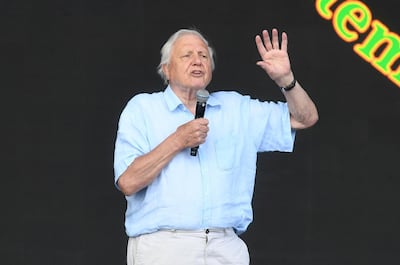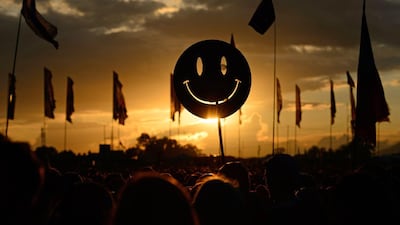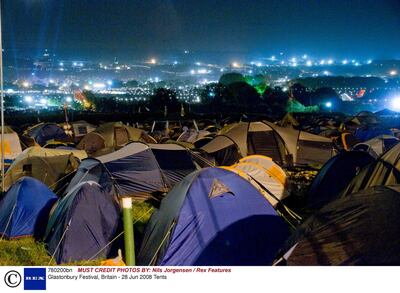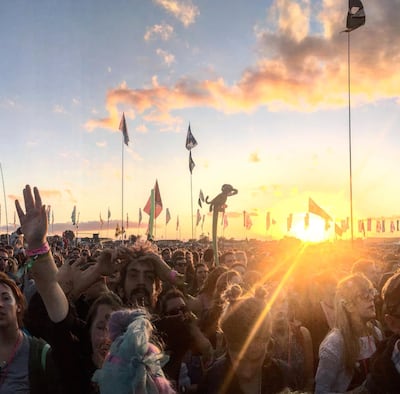Despite months of planning, dedicated group chats and one very organised spreadsheet, I, like 2.2 million others, failed to get my hands on a Glastonbury ticket for next year. It’s been three weeks, and I still cannot get the crushing disappointment out of my mind. I’m not sure I ever will.
Those who have never been to Britain's Glastonbury Festival may think I am being dramatic. And while that might be true, those who have had the pleasure of attending the best live music event in the world will undoubtedly understand my pain.
To make matters worse, 2020 is a mammoth milestone. This week, its organisers Michael and Emily Eavis will release Glastonbury 50, a book telling the story of how this event in rural England became a global phenomenon over the past five decades, attracting many of the world's biggest musicians.
From Bowie to McCartney, The Smiths to Blur, it's hard to find a rockstar who hasn't graced the Pyramid Stage. But for Glastonbury goers, Worthy Farm is about so much more than the music. Despite its now astronomical scale, the festival has maintained the carefree community feel it started with in 1970, when Michael Eavis, a dairy farmer, staged a small music event on his land, inviting locals from the surrounding Somerset villages.
Back then, it was called Pilton Pop, Folk & Blues. Tickets cost £1 (Dh4.75), and The Kinks headlined. Fast-forward 50 years, and Glastonbury now draws more than 200,000 people to that same farm, to watch 2,800 performers across almost 100 stages. They take yoga classes, hear politicians speak, rally for environmental causes and watch circus shows. For five days each June, it becomes one of the most liberal, progressive and peaceful communities on Earth.
What makes Glastonbury special, much like the music it champions, is that it brings people together. It offers five days of escape, freedom and the type of camaraderie that is dulled by the blinkers we wear in everyday life. People can, and do, become whoever they want to be within the venue's perimeters, and no one is there to judge, ridicule, or say you "can't".
Whether you are wading through ankle-deep mud (likely) or dealing with 30°C-plus temperatures with very little shade (less plausible, but did happen this year), Glastonbury might be the one place in England you won't hear people moan about the weather. It unites people when major news headlines break, such as in 2009, when the Thursday evening of the festival was interrupted with the announcement that Michael Jackson had died.
Or in 2016, when I, like 150,000 other attendees, learned of the UK's Brexit fate. Despite the vote not going my way, I felt comfort knowing that everyone around me was feeling that same looming dread would be waiting for us back in the "real world". It made us soak up that weekend of Glastonbury goodness even more.

Glastonbury even manages to unite people in their bitter disappointment at not getting a ticket, and in this fractured world that is something special.
So I'm here to say: happy 50th birthday, Glastonbury. I must accept that I won't be there, but I will still be celebrating. Here's to many, many more.




